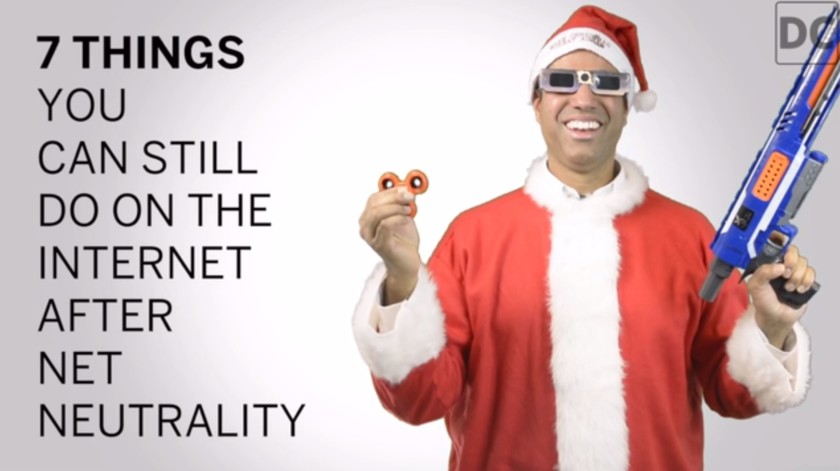The topic of “net neutrality” has been a hot-button issue for a few months leading up to the December 14 vote by the Federal Communications Commission (FCC). After the FCC voted on party lines ( 3-2 to repeal net neutrality) despite the majority of voters supporting the current net neutrality rules, the internet went crazy. it’s hard to know exactly what to believe, with some people exaggerating the extent to which this decision will affect our everyday internet use, and others severely downplaying its effect. So, here are some things to know in regards to net neutrality and how it might affect you in the near future.

- What is net neutrality?
It is a set of rules designed to make Internet service providers treat all web traffic the same, no matter the source. In other words, it is the basis of an open internet where information travels freely without interference by broadband providers. With net neutrality, the Internet service you pay for allows equal access to all legal websites, no matter the type or size of the website, and prevents providers from discriminating against any sources. - What did the FCC vote change?
When the FCC voted on December 14 to abolish net neutrality protections, it also undid an Obama-era move that had solidified the FCC’s authority to regulate Internet providers and therefore enforce net neutrality. In 2015, the FCC reclassified broadband as a “common carrier”, allowing it to be regulated by the government, but the December 14 vote reverts broadband back to an “information service”, which removes the FCC’s power to regulate providers.
- What changes might we notice in the near future?
Without net neutrality protections, Internet providers are free to change the way they charge for their services. In other words, they can offer a website faster and more reliable delivery of its content in exchange for a fee, which could therefore cause consumers to have to pay more for certain sites. For example, consumers could see the price of their Internet go up for access to sites like Netflix, which rely on high-speed and reliable connections. If Netflix has to pay for the “fast lane”, it could pass the cost onto customers. This change could also give an unfair advantage to big corporations that can afford priority access, while squeezing out startups and smaller websites. Another fear is that providers could influence the political environment by preventing internet customers from accessing certain types of political speech on the public net. A real example of this is in 2007 when Verizon prevented Naral Pro-Choice from using text messages to sign up new supporters, citing their right to block “controversial or unsavory” content.
Change may not happen quickly. In fact, change might happen so gradually that you may not notice it. But soon, we could be paying more for services like YouTube or Netflix, having our political information censored, and seeing startups and small websites prevented from reaching success, like sites like Pinterest and Etsy did thanks to a free and open internet. The legacy of egalitarian access to all content and services could be halted. Internet giants that are able to pay up for faster services will further monopolize the industry. But the fight is not over. The public support for net neutrality is astonishingly clear. Experts say they expect multiple lawsuits to be filed challenging the repeal—and two state attorneys general, New York Attorney General Eric Schneiderman and Washington state Attorney General Bob Ferguson, have already announced their intent to litigate. So if a free and open internet is important to you, let’s not let the issue stay in 2017. Let’s make sure that net neutrality continues to be a hot-button issue in 2018, until internet access is fair and equal for everyone.
By: Cianna Allen

